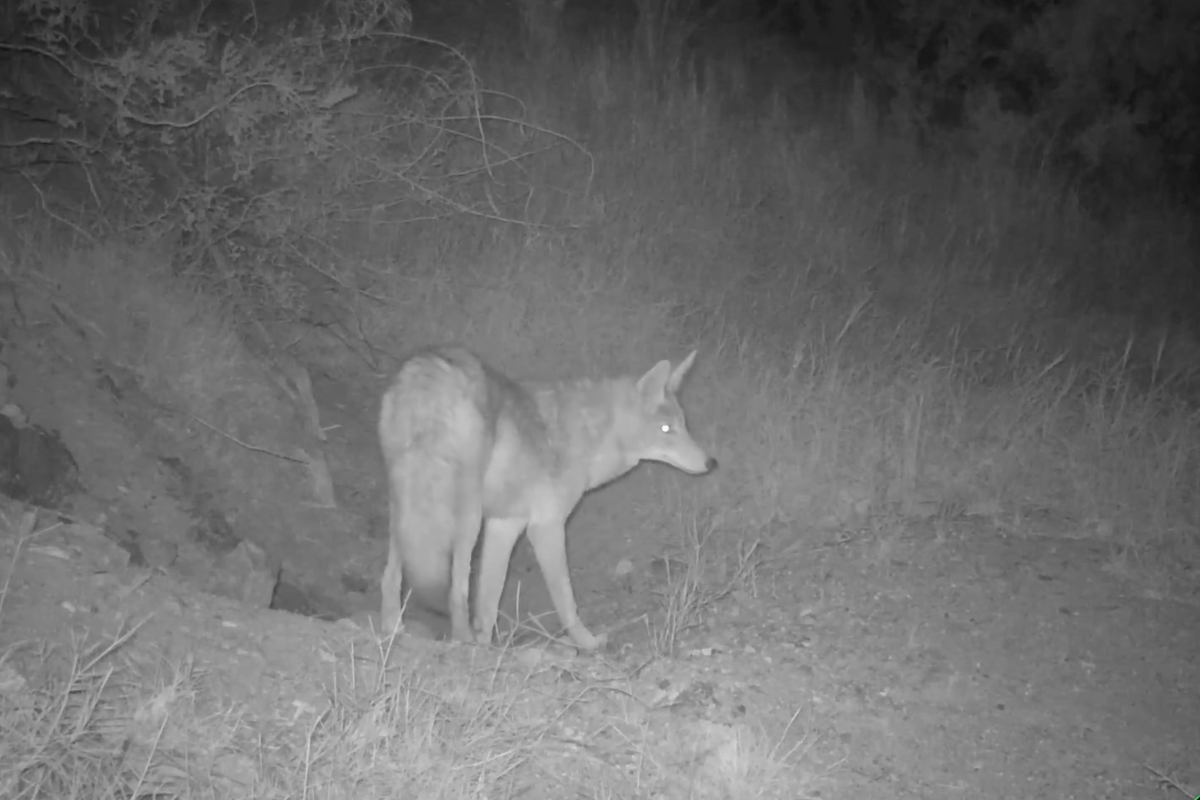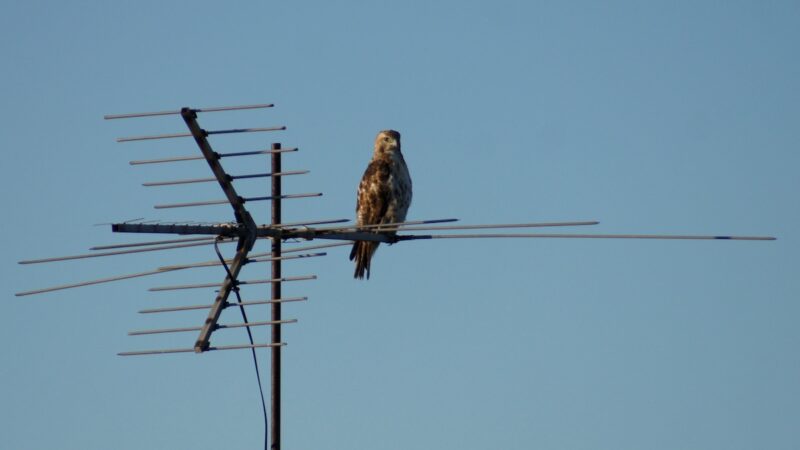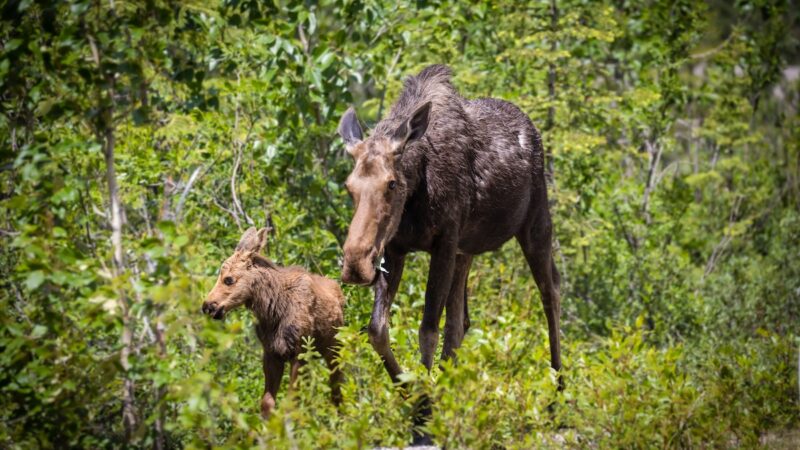They May Be Wild Canines, But Coyotes Get the Zoomies Just Like Your Dog

It’s no surprise that dogs and coyotes are related. Both canines have a shocking resemblance. And sometimes, they even act like pet dogs. At least that‘s what it looks like in this video with a coyote with the zoomies.
Videos by Outdoors
Check out the clip:
The video comes from California State Parks. A trail camera in Providence Mountains State Recreation Area captured this video of a coyote that’s hopping around. The animal eventually starts bolting with excitement, and another coyote shows up to join in the fun.
Understanding Coyotes and Zoomies
This behavior is often called the zoomies. While it’s not a professional term, veterinarian professionals know all about it. In short, they define zoomies as when a pet, like a cat or dog, gets excited and bolts around.
There’s also a scientific name for it: Frenetic random activity periods.
“It is thought that this crazy racing behavior is a way for pets to release pent up energy, wrote a veterinarian hospital on their blog. “Zoomies can occur out of the blue, but sometimes they are associated with a novel or stressful event such as after a bath, if a dog has been crated or confined all day, or during play. Dogs may get the zoomies when you return home, late in the evening, after defecation or when something exciting happens.”
While coyotes are genetically related to dogs, it’s important to remember they are wild animals. The American Humane Society recommends always walking your dog on a leash. They also suggest staying on trails and making noise as you hike through the woods. Coyotes will generally keep their distance and avoid humans. However, picking your pet up is a good idea if you spot a coyote and have a smaller dog.
Want to capture your own videos of wildlife? Check out trail cameras in our store.
Source: https://outdoors.com/they-may-be-wild-canines-but-coyotes-get-the-zoomies-just-like-your-dog/





